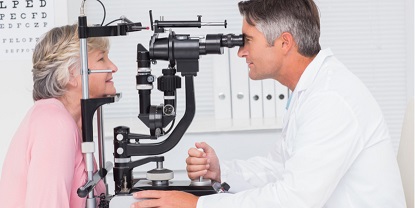EYE DOCTOR SHEEPSHEAD BAY

Descrição do serviço
Dr. Shlimov is an optometrist in BROOKLYN providing complete eye care services for the surrounding communities.
Background
As a licensed optometrist, Dr. Shlimov provides exams, diagnoses, and treatments of all disorders that affect the eye or vision. In addition to training in eye diseases and disorders, Dr. Shlimov is also trained in anatomy, biochemistry, and physiology. With this background, Dr. Shlimov is trained to recognize a range of health issues; such as glaucoma, macular degeneration, diabetes and hypertension.
Dr. Anderson works hard to stay current on the latest advances in eye health and vision care and regularly attends continuing education seminars and advanced training courses.
It is because of Dr. Shlimov’s dedication to continuing education that our BROOKLYN patients receive the most modern and progressive vision care available.If you have ever undergone eye surgery, a trained ophthalmologist has done the work. Ophthalmology focuses on treating diseases and conditions that affect the anatomy and physiology of the eye. What this means is that an ophthalmologist takes care of both surgical procedures and medical care for the eye. They are specialists in dealing with multiple eye diseases and conditions.
Ophthalmology Training and Education
Becoming an ophthalmologist requires a medical degree and completing residency like other branches of medicine. Some ophthalmologists can undergo additional training if they choose and focus on a specialty within the field.
Ophthalmology training covers the entire spectrum of eye care. Ophthalmologists are trained to do thorough eye exams to prescribe glasses or contact lenses, offer medical treatment for assorted eye problems, and do complex and delicate eye surgeries for qualified candidates. They also take an active role in conducting scientific research on eye diseases and other serious vision problems. Ophthalmologists work to uncover causes behind these things and find cures.
An ophthalmologist is a licensed medical doctor, so they are permitted to practice medicine and surgery. This is different from an optometrist who focuses on performing eye exams, prescribing corrective lenses, and prescribing medications for certain eye diseases. Often, optometrists and ophthalmologists will work together to provide complete eye care for a patient.
Ophthalmologist Sub-Specialties
The field of ophthalmology includes multiple sub-specialties where an ophthalmologist can focus on treating and curing specific types of eye problems. This can make it easier to address specific needs of eye patients.
These ophthalmology sub-specialties include:
Cornea and External Disease: Diagnosing and treating diseases related to the cornea, sclera and eyelids are the primary focus of this specialty. Training within this specialty includes doing corneal transplant surgery and other types of corneal surgery.
Glaucoma: This specialty concentrates on medical and surgical treatment of glaucoma and other age related vision disorders that can create optic nerve damage through increased ocular pressure.
Neuro-ophthalmology: A nonsurgical specialty focused on diseases affecting the optic nerve and visual pathways. It deals with the relationship between neurologic and ophthalmic diseases and can be combined with eye and orbital surgery.
Ophthalmic Pathology: An ophthalmic pathologist examines tissue samples culled from the eye and adnexa in helping to diagnose eye diseases and vision problems.
Ophthalmic Plastic Surgery: With this specialty, the focus is on reconstructive surgery in facial and orbital areas. It can include complex surgeries on eyelids, orbits, certain facial bones, and the lacrimal system.
Pediatric Ophthalmology: This specialty focuses on dealing with vision problems and eye diseases affecting children. Pediatric ophthalmologists offer medical and surgical treatment of genetic ocular abnormalities and serious eye diseases before a patient reaches adulthood.

